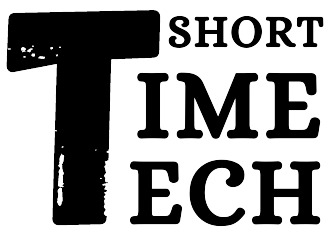In our increasingly connected world, the internet plays a crucial role in our daily lives. From social media to constant news updates, the digital landscape can be overwhelming. As we move through 2024, the concept of a digital detox is gaining popularity as a way to combat the adverse effects of digital overload. This article explores the impact of digital detoxes on mental health, practical steps to implement them, and the benefits of mindful living in the digital age.
1. The Impact of Digital Overload on Mental Health
The internet has revolutionized how we communicate, work, and access information. However, the constant connectivity can lead to digital overload, which has been linked to various mental health issues. Excessive screen time, particularly on social media, can contribute to increased levels of anxiety, depression, and stress.
Research has shown that constant exposure to social media can lead to comparison fatigue, where individuals feel inadequate by comparing their lives to others’ seemingly perfect portrayals. Additionally, the bombardment of news and notifications can create a sense of perpetual urgency, making it difficult for people to relax and unwind.
Digital overload also affects sleep patterns. The blue light emitted by screens interferes with the production of melatonin, a hormone that regulates sleep. Poor sleep quality, in turn, exacerbates mental health issues, creating a vicious cycle.
2. Practical Steps for Incorporating a Digital Detox
Implementing a digital detox doesn’t mean completely cutting off from technology; rather, it involves making intentional choices to reduce screen time and improve mental well-being. Here are some practical steps to incorporate a digital detox into your daily routine:
Set Boundaries: Establish specific times during the day when you will disconnect from screens. For instance, designate “screen-free” periods during meals and before bedtime. This helps create a routine that balances online and offline activities.
Create Technology-Free Zones: Designate certain areas in your home, such as the bedroom or dining room, as technology-free zones. This encourages more face-to-face interactions and helps reduce the habit of mindlessly checking devices.
Practice Mindful Usage: Be intentional about how you use technology. Instead of aimlessly scrolling through social media, allocate time for purposeful activities like reading or learning new skills online. Use apps that track your screen time and set limits to keep yourself accountable.
Engage in Offline Activities: Replace digital activities with offline hobbies and interests. Whether it’s exercising, reading a book, or spending time in nature, engaging in activities that don’t involve screens can help alleviate the stress of constant connectivity.
3. The Benefits of Mindfulness and Mental Clarity
Adopting a digital detox can lead to significant improvements in mental health and overall well-being. By reducing screen time, individuals can experience enhanced mental clarity and reduced stress levels. Mindfulness practices, such as meditation and deep breathing exercises, can further complement the benefits of a digital detox.
Improved Focus and Productivity: Without the constant distractions of notifications and social media, individuals often find that they can concentrate better on tasks and be more productive. This improved focus can lead to better performance in both personal and professional areas.
Enhanced Sleep Quality: Reducing screen time before bed can improve sleep quality by allowing the body to produce melatonin naturally. Better sleep leads to improved mood, cognitive function, and overall mental health.
Stronger Relationships: Digital detoxes encourage more face-to-face interactions, which can strengthen personal relationships. Spending quality time with family and friends without the distraction of devices fosters deeper connections and enhances emotional support.
Conclusion
In 2024, the concept of a digital detox is becoming increasingly relevant as people seek to balance their online and offline lives. The impact of digital overload on mental health is significant, but by incorporating practical steps for reducing screen time and practicing mindfulness, individuals can experience substantial benefits. Improved focus, better sleep, and stronger relationships are just a few of the advantages of embracing a digital detox. As we navigate the digital age, prioritizing mental well-being through intentional use of technology will be essential for maintaining a healthy and fulfilling lifestyle.

